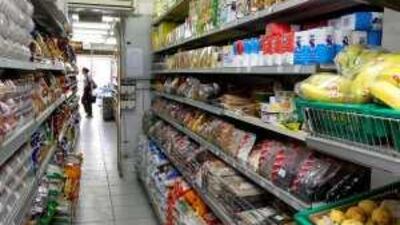Agthia Group, which produces Al Ain Water and Capri-Sun juice in the region, posted a rise in profits of 44 per cent last year. Revenues increased by 8 per cent compared with 2008 to Dh921 million (US$250.7m), while profits rose to Dh107m, Agthia said yesterday.
Its financial performance was further boosted by higher profit margins in its flour and feed business in the first half, due to the falling cost of animal feed globally against Agthia's stable selling price in the regional market. David Edwards, the managing director of IMES Consulting Group, a market research and consulting firm based in Dubai, said: "We all have to eat and drink, regardless of the economic situation around us.
"While there may be some elements of discretionary spending with respect to a box of chocolates or very expensive foodstuffs, the reality is that companies like Agthia in basic food products are not going to be affected by a downturn in per-capita spending. The only downside risk to them really comes from falls in population." Grocery sales were relatively robust last year across the UAE, estimated at about $7.7 billion, up 10.5 per cent from 2008, data from the market intelligence firm Euromonitor showed.
Consumers in the UAE have restricted their spending this year but key goods continue to be resilient. Only 4 per cent of shoppers have stopped buying fresh juices, last month's data from Datamonitor's Recession and Recovery survey show. Agthia started producing Capri-Sun juices under its local licence in the second quarter of last year, helping the company to tap into this continued spending. It also introduced new lines of tomato paste and frozen vegetable products last year.
"Higher sales were driven by strong volume growth across all product lines and the launch of Capri Sun in Q2 2009, partially offset by the drop in animal feed prices compared to 2008," Iqbal Hamzah, the chief financial officer of Agthia Group, said in a statement on the Abu Dhabi Securities Exchange website. The fluctuation in cereal commodity prices in the first half was a major contributor to Agthia's profit growth, said Laurent-Patrick Gally, a retail analyst at Shuaa Capital based in Dubai.
Cereal prices globally fell by 20 per cent in 2008 and a further 15 per cent last year until October, before rising again, data from the Food and Agriculture Organisation's cereal price index showed. The market price of flour was steady. Of its total profits of Dh107m last year, only Dh19m was generated in the third quarter, and Dh7.5m in the fourth quarter of last year, Mr Gally said. "While increased sales of water and juice helped, most of the revenue is due to the cereal feed and animal feed business, and most of the money has been made in the first six months of the year," he said.
Mr Edwards said that these healthy profits would give Agthia the ability to further extend its reach into the consumer food products industry. "With these sorts of profit numbers, Agthia should have a cash war chest and can invest when it sees sensible opportunities for them in stable food stuffs," he said. @Email:aligaya@thenational.ae

